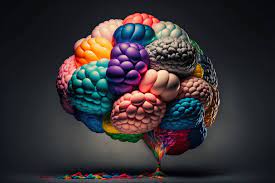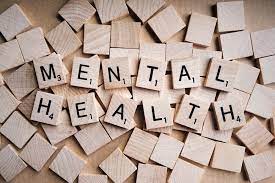by: Lydia Webb
When you hear someone refer to mental health, what they are really referring to is the state of emotional, psychological, or social well-being, affecting how one thinks, feels, and acts (CDC, 2023). While most people think of being healthy as physically fit, most don’t typically think about the state of their mind. When it comes to overall health, mental and physical health are both equally important. For example, depression increases the risk for many physical diseases, typically long lasting conditions like diabetes, heart disease, and stroke (CDC, 2023).
How Common are Mental Illnesses
According to the Center for Disease Control and Prevention (2023) :
❖ More than 1 in 5 US adults live with a mental illness
❖ Over 1 in 5 youth (ages 13-18) either currently or at some point during their life have had a debilitating mental illness
❖ About 1 in 25 US adults live with a serious mental illness (schizophrenia, bipolar disorder, or major depression)
The Effects of Physical Activity on Mental Health
Studies have shown there to be positive effects in regards to exercise and mental health. According to Mayo Clinic, regular exercise may help to ease or reduce depression and anxiety by releasing “feel good” endorphins and taking your mind off of the worry. But, how much exercise and or physical activity does one need to feel these effects? While the ACSM recommends up to 150 minutes of moderate intensity and 75 minutes of vigorous intensity physical activities, this is just the recommendation to meet the goals for aerobic capacity. Any amount of exercise is beneficial in regards to building a healthy mind.
How to Get Active and Stay Active
There are many ways to get started with physical activity, the questions becomes, how does one get started with activity and avoid the cycle of getting started, falling off, and ending back up where they started. Below are a few ways to maintain physical activity after getting started:
❖ Find something that you enjoy: Finding a form of physical activity that you enjoy keeps it from feeling more like something you “should” do. But, this can be avoided if you look forward to physical activity because it is fun for you.
❖ Get support: Having friends and family to support you in your journey will help keep you motivated to stay active.
❖ Set reasonable goals: By setting obtainable goals for yourself will help to keep you focused rather than disappointed.
❖ Think of physical activity as something that is helping you: Thinking of physical activity as something that is benefiting you will make it easier to stay consistent, rather than something you should do just because you are told to.
❖ Prepare for obstacles: Knowing that there will be obstacles at some point in your journey will help you to better prepare for when those occur and minimize discouragement.
References
“Depression and Anxiety: Exercise Eases Symptoms.” Mayo Clinic, Mayo Foundation
for Medical Education and Research, 23 Dec. 2023,
www.mayoclinic.org/diseases-conditions/depression/in-depth/depression-and-exercise/art-20046495.
“About Mental Health.” Centers for Disease Control and Prevention, Centers for Disease Control and Prevention, 25 Apr. 2023, www.cdc.gov/mentalhealth/learn/index.htm.

